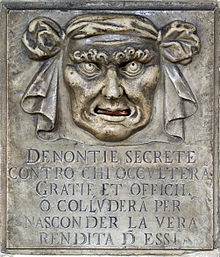Spies

Spy is a - usually negative - expression for a type of informant who carries out espionage on a lower social level or not in the exercise of an official function.
Spy and other agents
Informers are usually referred to as informers who, on their own initiative or on request, usually in return for some form of reward, an intelligence service or the police or a private investigator, provide information about such persons, groups or organizations to which the recipient of the information does not have access Has.
Quotation: »Even if a spy denounces, he is still to be distinguished from the figure of the informer: A spy not only takes advantage of opportunities, he has the task of actively creating them. And so even the traitor is still above him. A spy also betrays, but unlike the traitor, he has never shared the cause or political goals and dreams for which people are committed (...). A spy also does not have the air of sovereignty that an agent or spy might claim for the pay of a foreign state power. "
Spy is different from undercover agents . As a rule, as members of a government agency (e.g. police or customs ), they invade groups or organizations on their behalf with a false identity that this agency suspects of illegal, mostly criminal acts, which it cannot prove from open sources.
V-men and V-women are also to be distinguished from informers (“V” for trust or connection). This describes people who have a permanent relationship with an intelligence service (mostly a state, but also that of a political organization, such as in the last century the SA, SS, the AM apparatus of the KPD) and on its behalf and according to his instructions with some regularity obtain news from them (often thanks to membership or sympathetic status) accessible groups, circles, organizations.
In the nature of things, there are no rules or regulations for the activity of informers. Undercover investigators and informants from government agencies, like everyone else, are fundamentally forbidden to commit crimes, even if they belong to circles of organized crime or terrorist groups. For the use of undercover agents by government departments to monitor extremist parties that has Federal Constitutional Court in the first NPD ban proceedings limitations specified.
In the GDR there was an extensive network of informers who mostly worked for the Ministry for State Security (Stasi) as unofficial employees (IM) in almost all areas of society - even in families - in order to obtain information about actual or potential anti-subversive activities Collect statements or activities and forward them to the Ministry. IM were used in part to activities in the Federal Republic of Germany and abroad to concealed information gathering that the system took advantage of the GDR.
In the Federal Republic of Germany undercover agents are often active for the protection of the constitution and / or the police, undercover agents for the police or private investigation offices . Spies can be found in the red-light district , the drug scene and in other milieus from the area of organized crime to political groups and organizations that may pursue anti-constitutional goals, especially from the right-wing extremist or left-wing extremist spectrum, but also where there are signs of security-endangering efforts by foreigners .
literature
- Hans Schafranek : V-people and "traitors". The infiltration of communist resistance groups by confederates of the Vienna Gestapo. In: International Scientific Correspondence on the History of the German Labor Movement No. 3/2000, pp. 300–349
- Hans Schafranek: Company "North Pole". The "Englandspiel" of the German military defense in the Netherlands 1942-1944. In: Hans Schafranek, Johannes Tuchel (ed.): Resistance and espionage in the Second World War. Vienna 2004, pp. 247–291
- Klaus-Michael Mallmann: The Gestapo informants. Outlines of a collective biography. In: Gerhard Paul, Klaus-Michael Mallmann: The Gestapo. Myth and Reality. Scientific Book Society, Darmstadt 1995, ISBN 3-534-12572-X .
- Wilhelm Mensing: Gestapo informants of communist origin - also a structural problem of the KPD? In: Bulletin of the Institute for Social Movements 34/2005, p. 77ff
- Wilhelm Mensing: Confidants of communist origin in the Gestapo and the Nazi intelligence services. In: Yearbook for Historical Research on Communism 2004, p. 111ff
- Wilhelm Mensing: Fought, sought, used. On the history of the Gestapo informants and "Gestapo agents". In: Journal of the Research Association SED-State No. 167/2005, p. 111ff
- Spies. A little social story . Edited by Markus Mohr, Klaus Viehmann. Berlin 2004. ISBN 3-935936-27-3
- Walter Otto Weyrauch: Gestapo informants. Intelligence facts and theory. Investigations into the Secret State Police during the National Socialist rule, Fischer, Frankfurt am Main 1992. ISBN 3-596-11255-9
- Alexander Sperk : V-People of the Political Police at the beginning of National Socialism In: Mitteilungen des Verein für Anhaltische Landeskunde, 21st year 2012, pp. 163–182
See also
Web links
Individual evidence
- ↑ From: Spy. A little social story.